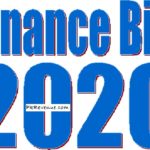KARACHI: The Karachi Chamber of Commerce and Industry (KCCI) has submitted its recommendations to rectify anomalies in the Finance Bill 2020, highlighting concerns over several taxation measures impacting trade and industry.
In a formal communication addressed to the Chairmen and Co-Chairmen of the Anomaly Committees formed by the Federal Board of Revenue (FBR), KCCI pointed out significant inconsistencies in the Finance Bill 2020-21, which was presented by the government on June 12, 2020. These anomalies pertain to Income Tax, Sales Tax, Federal Excise Duty, and Customs regulations.
KCCI emphasized that these anomalies have created unnecessary hurdles for businesses and have the potential to negatively impact economic activity. The chamber has requested that these issues be discussed in upcoming meetings of the Anomaly Committee-Business and Anomaly Committee-Technical, chaired by Saqib Sherazi and Ashfaq Tola, respectively. Additionally, Muhammad Jawed Ghani, Member-Customs FBR, and Dr. Hamid Ateeq Sarwar, Member-IR Policy FBR, have been designated as Co-Chairmen of these committees.
The Karachi Chamber of Commerce and Industry has elaborated on various issues created due to these anomalies and has proposed corrective measures to address them. Below are some of the major anomalies highlighted by KCCI along with suggested rectifications:
1. Withdrawal of 3% Further Tax on Sales to Unregistered Persons
KCCI’s Concern: The imposition of a 3% Further Tax on supplies to unregistered persons has inadvertently led to the proliferation of fake and flying invoices. To avoid this tax, suppliers have been issuing invoices to registered entities, who then claim adjustments and refunds. Despite the FBR’s agreement to withdraw this tax, it remains incorporated in the Finance Bill 2020-21.
Impact: The introduction of Section 56AB in the Sales Tax Act 1990 grants the FBR real-time access to citizens’ financial data. This renders the 3% Further Tax unnecessary, as FBR should now take responsibility for documenting unregistered persons.
Proposal for Rectification:
1. The 3% Further Tax should be withdrawn to facilitate transactions and alleviate liquidity constraints for businesses.
2. FBR should be responsible for broadening the tax base and ensuring that all entities are registered under the Sales Tax regime.
2. CNIC Provision and 3% Further Tax: A Counterproductive Measure
KCCI’s Concern: The requirement for suppliers to provide CNIC details of unregistered buyers while simultaneously imposing a 3% Further Tax is contradictory and counterproductive.
Impact: Once a supplier provides a CNIC number, FBR has the necessary information to track and document unregistered buyers. Imposing an additional tax is unjustified and places an unnecessary burden on businesses.
Proposal for Rectification:
• The 3% Further Tax should not be applicable where CNIC details of unregistered buyers are provided.
• FBR should utilize its access to bulk financial data to identify and register unregistered businesses instead of shifting the burden onto suppliers.
3. Data Security Risks Due to FBR’s Expanded Access
KCCI’s Concern: The Finance Bill grants FBR access to citizens’ financial data through institutions like FIA, banks, NADRA, and airlines, raising significant security and privacy concerns.
Impact: With technological advancements, data breaches and hacking are growing threats. This data holds substantial commercial value and could be exploited if not adequately protected.
Proposal for Rectification:
1. Legal safeguards should be included to ensure data security.
2. Exemplary penalties should be imposed on FBR officials found compromising data integrity.
3. Data access should be restricted to senior officers only.
4. Increase in Federal Excise Duty (FED) on Caffeinated Energy Drinks
KCCI’s Concern: The Finance Bill 2020 has increased the FED on caffeinated energy drinks from 13% to 25%, which is unjustified and discriminatory.
Impact: This excessive tax targets a single major producer of these beverages, despite their significant tax contributions exceeding Rs. 100 billion annually. This measure appears to single out one industry player unfairly.
Proposal for Rectification:
• The FED on caffeinated energy drinks should be reverted to 13% to maintain affordability and encourage local production.
5. Restriction on Presenting New Documentary Evidence in Appeals
KCCI’s Concern: A new sub-section (5) added to Section 45B disallows taxpayers from presenting new documentary material or evidence before the Commissioner (Appeals) if it was not presented earlier to Inland Revenue officers.
Impact: This provision undermines taxpayers’ right to a fair appeal process, violating principles of natural justice and constitutional rights.
Proposal for Rectification:
• This clause should be removed to ensure that taxpayers retain the right to present new evidence at any stage of their appeal.
6. Reduction in Tax Credit for Investment in New Machinery
KCCI’s Concern: The Finance Bill 2020-21 has reduced the tax credit for investment in new machinery from 10% to 5%.
Impact: The reduction discourages investment in industrial expansion and modernization, negatively affecting economic growth and employment.
Proposal for Rectification:
1. The tax credit should be restored to at least 10%.
2. This incentive should remain applicable until at least FY2025 to encourage industrial investment.
Conclusion
KCCI remains steadfast in its commitment to representing the concerns of the business community and advocating for policies that promote economic stability and growth. By addressing these anomalies in the Finance Bill 2020-21, the government can foster a more business-friendly environment, enhance investor confidence, and promote economic recovery.
The Karachi Chamber of Commerce and Industry urges the government and FBR to seriously consider these recommendations and take immediate corrective measures to ensure that businesses are not unfairly burdened. By doing so, the government can facilitate a more transparent and equitable taxation system that encourages compliance while supporting economic expansion.
